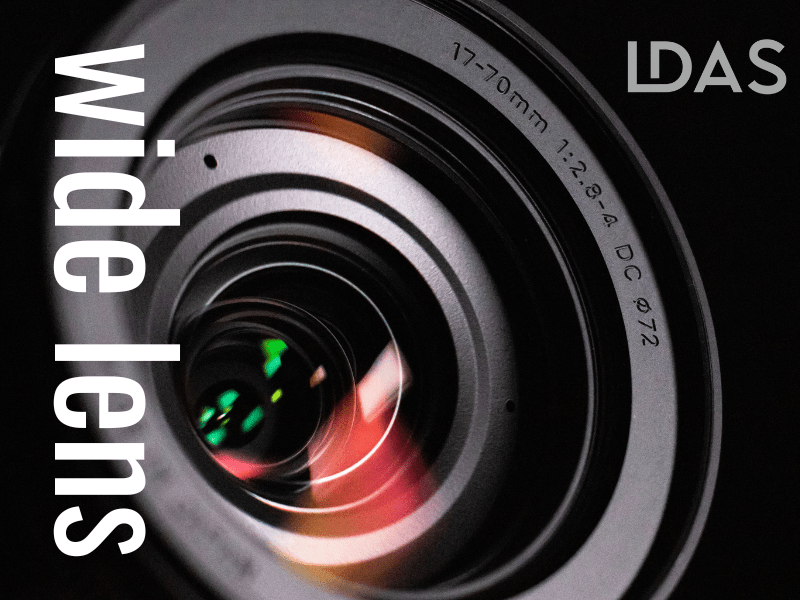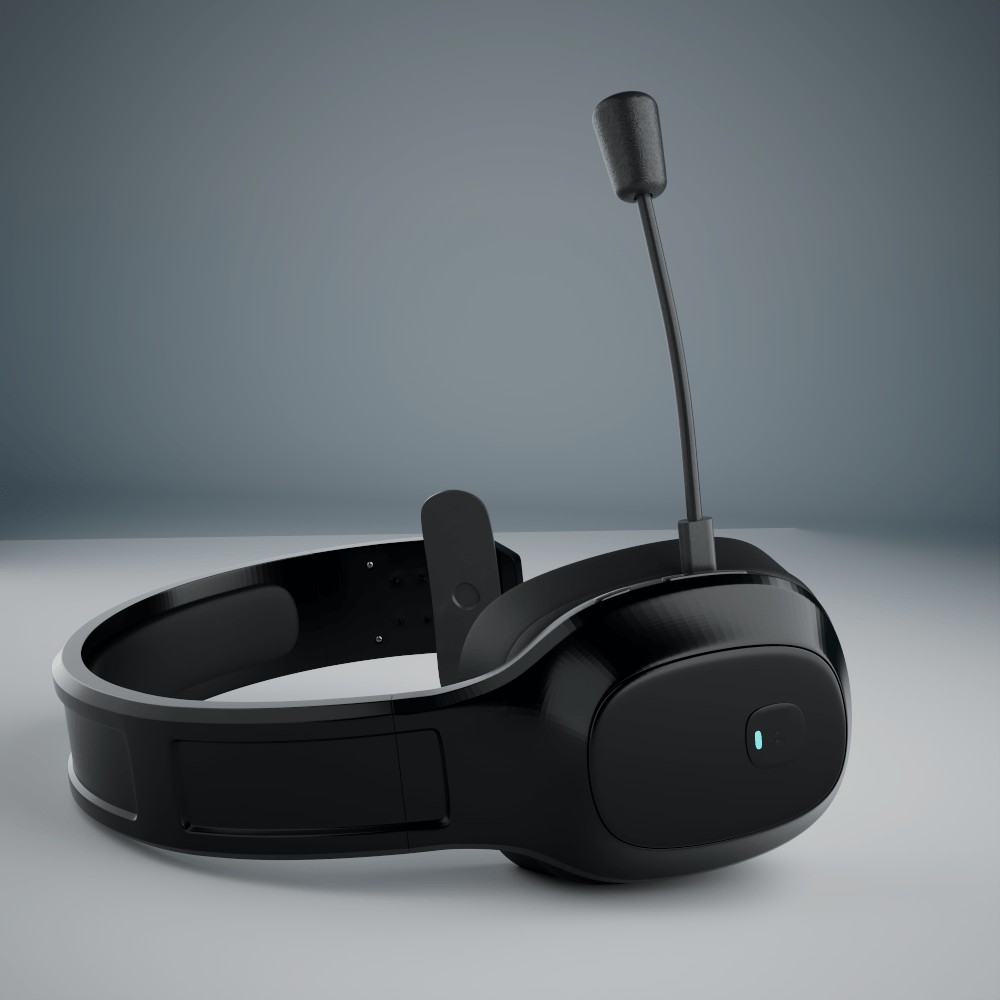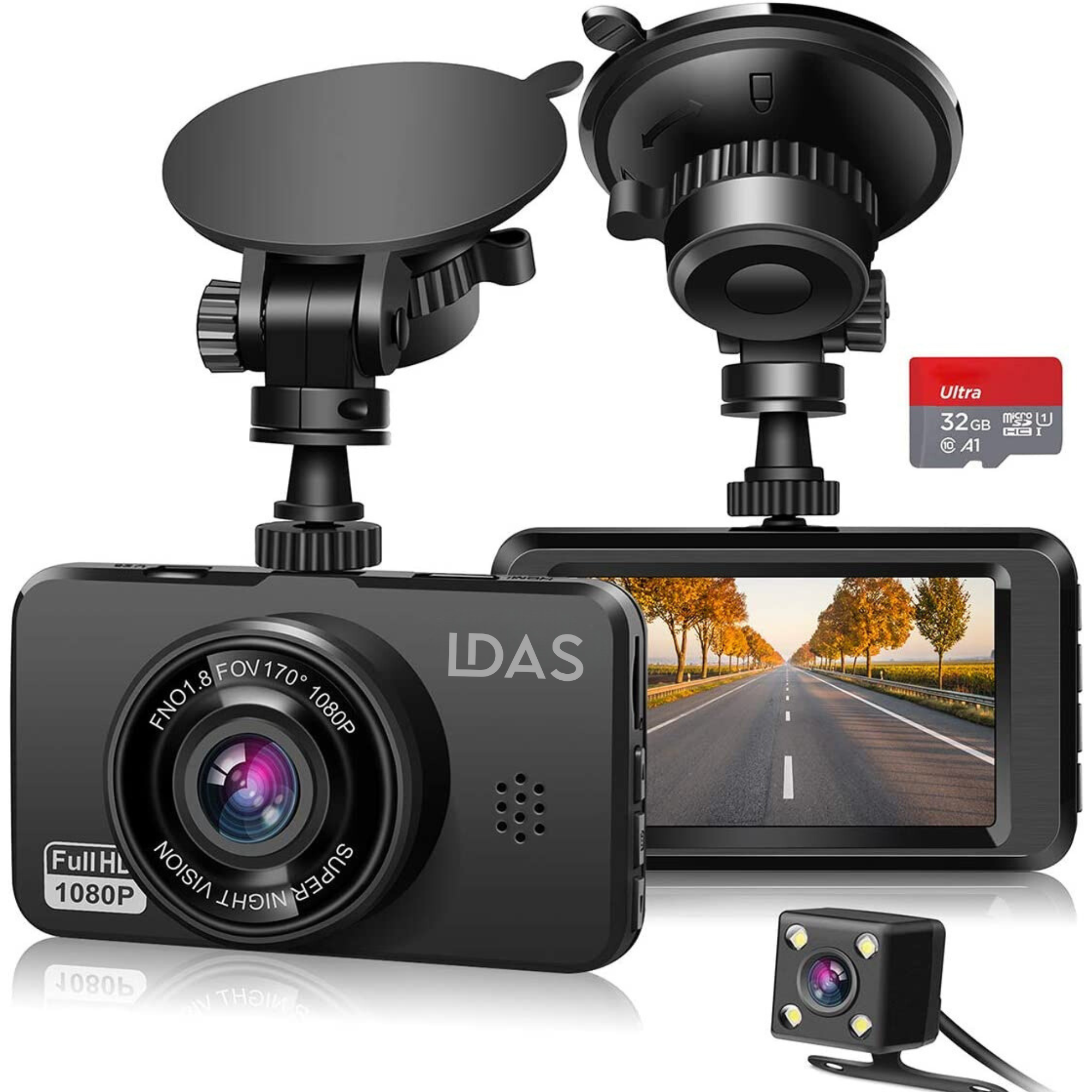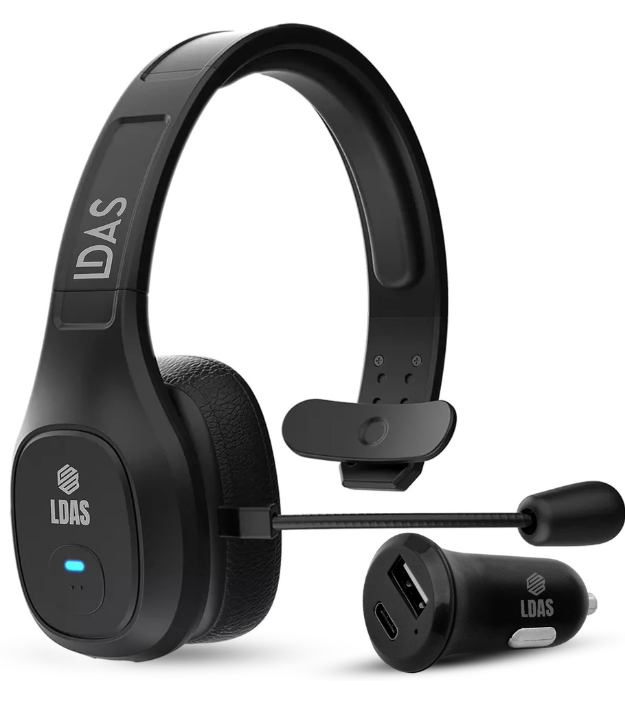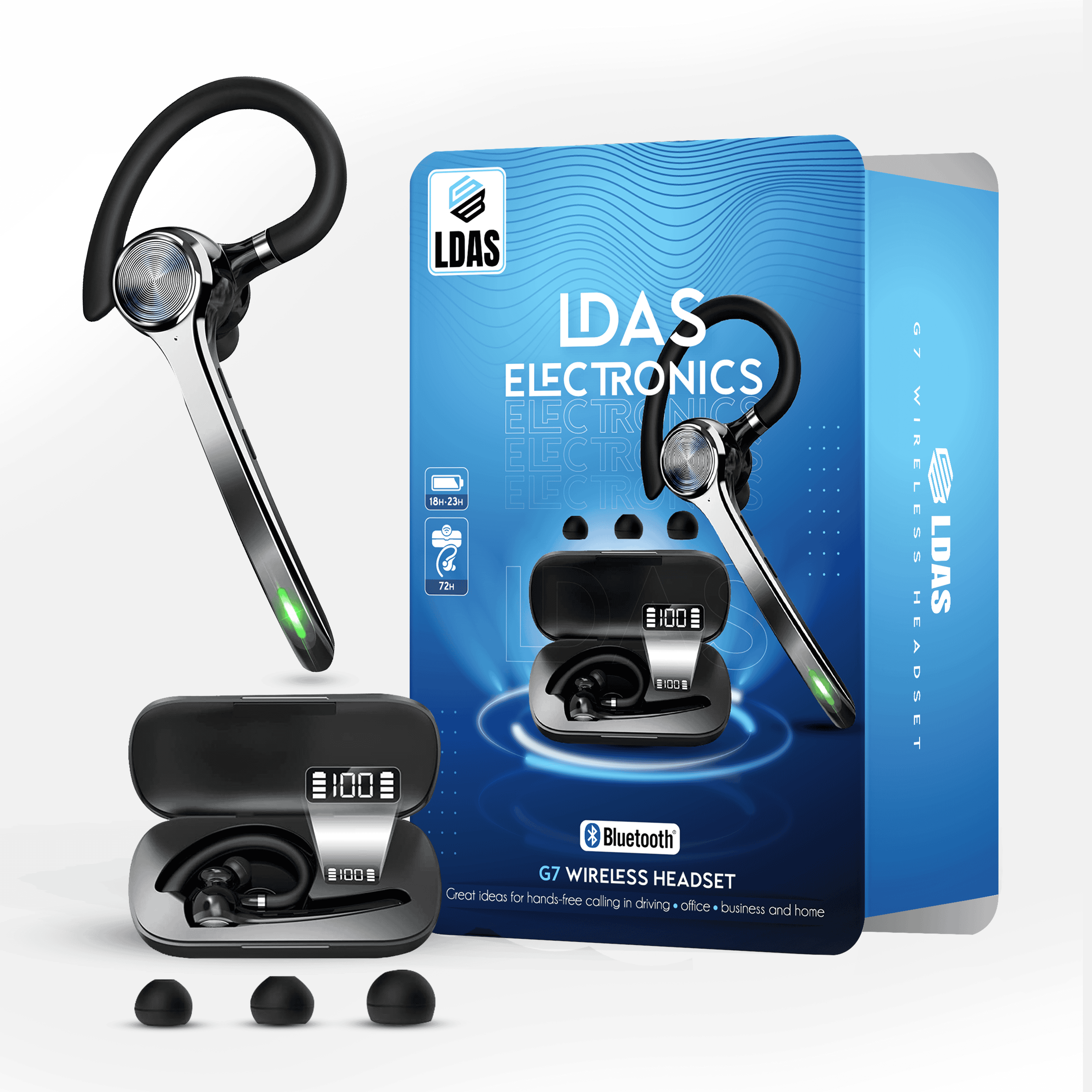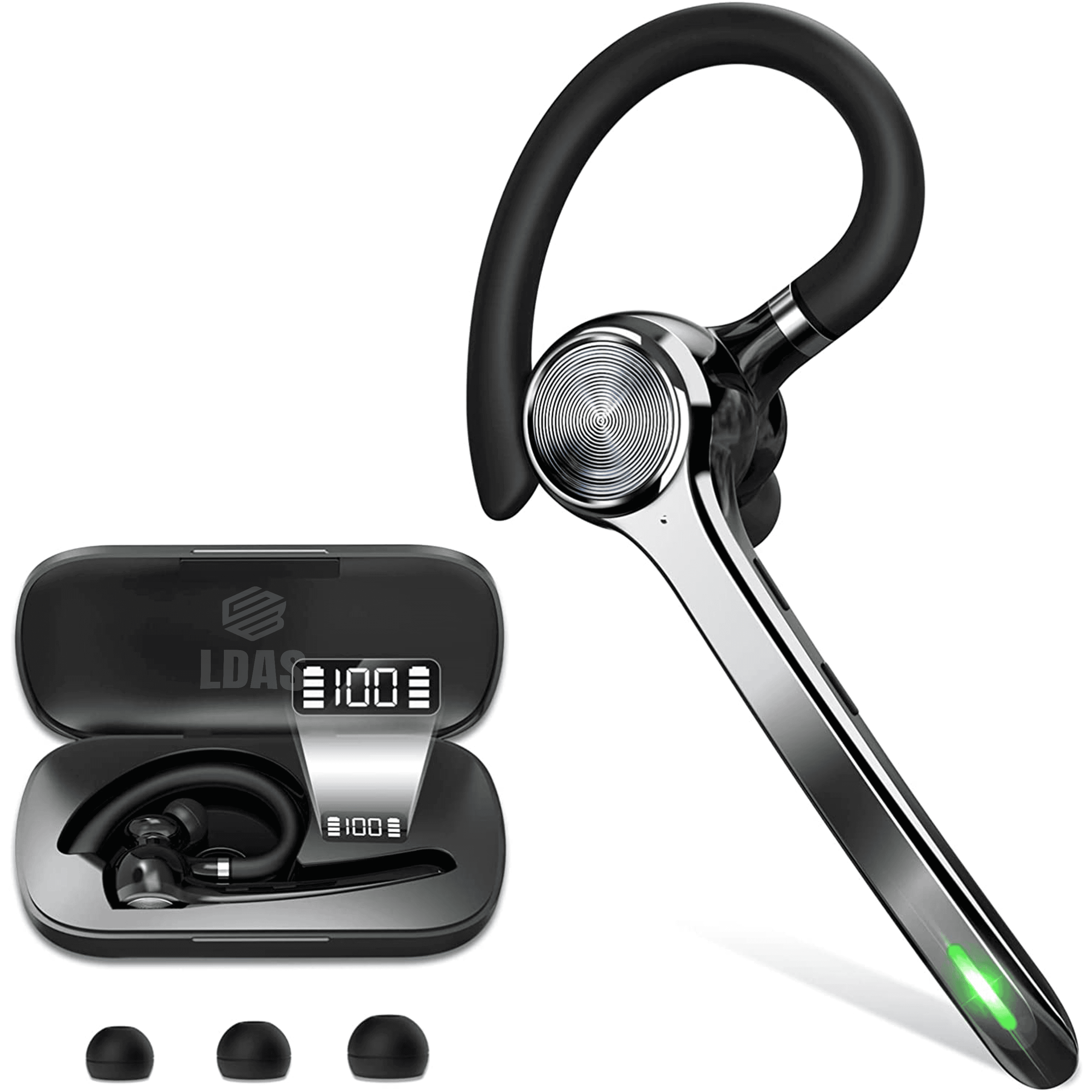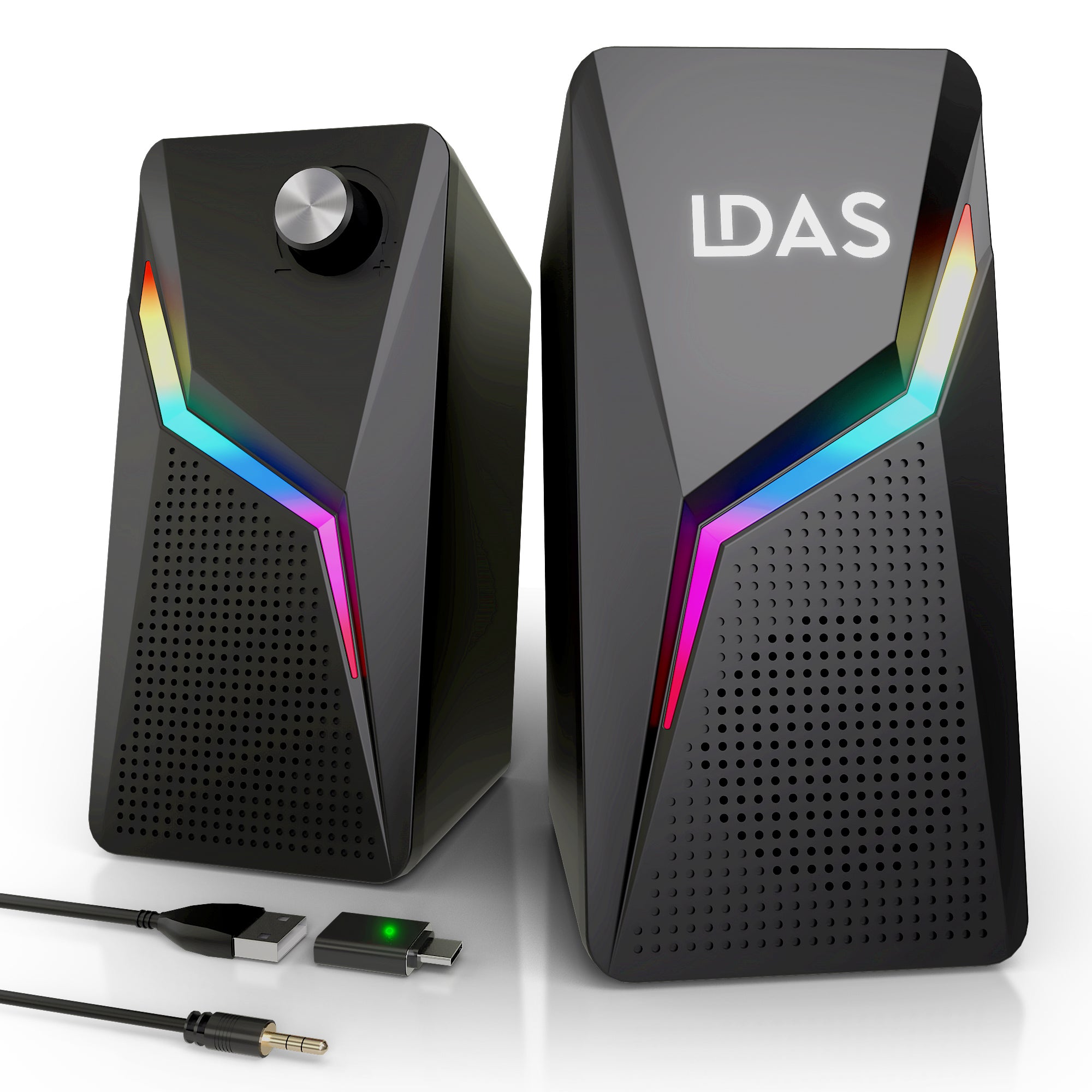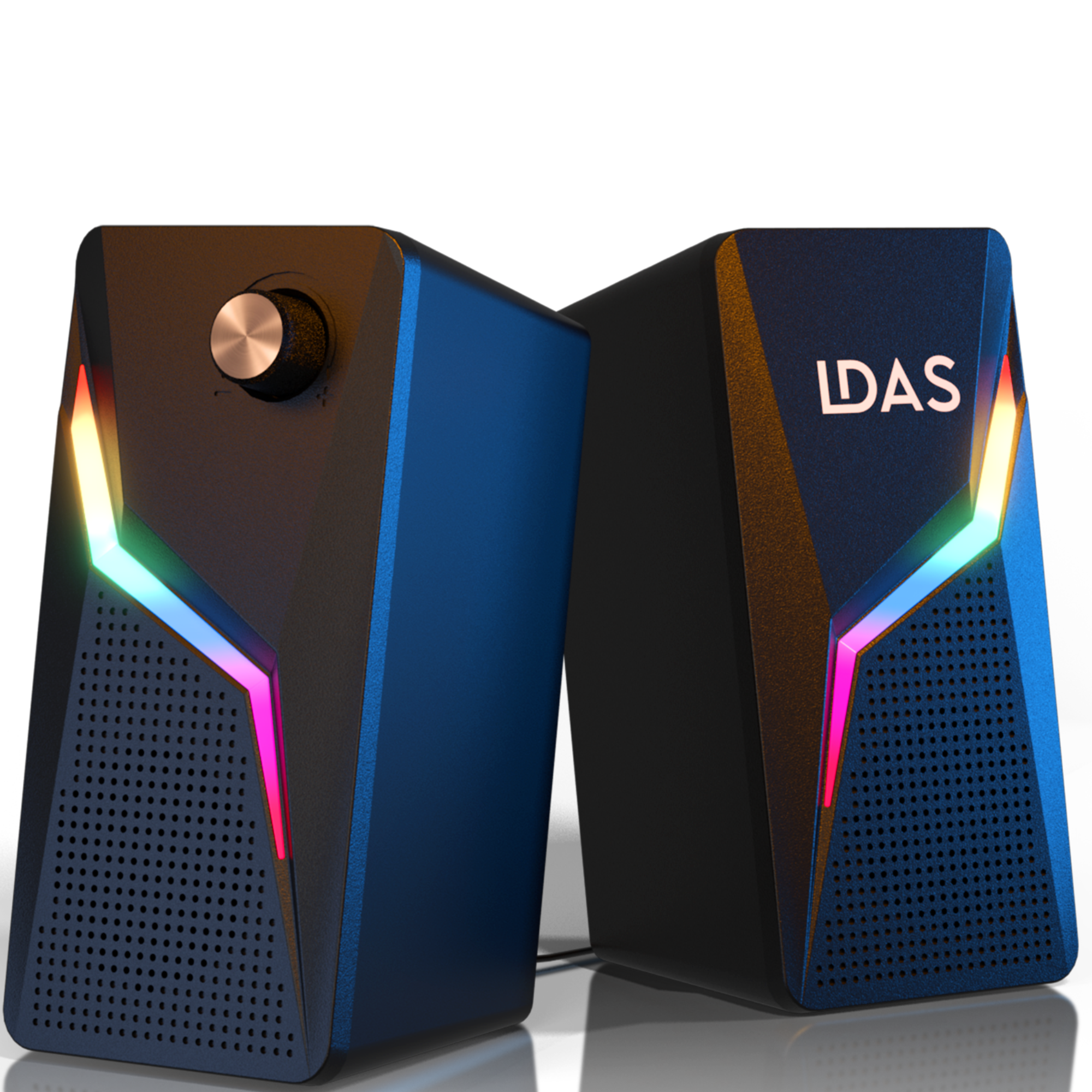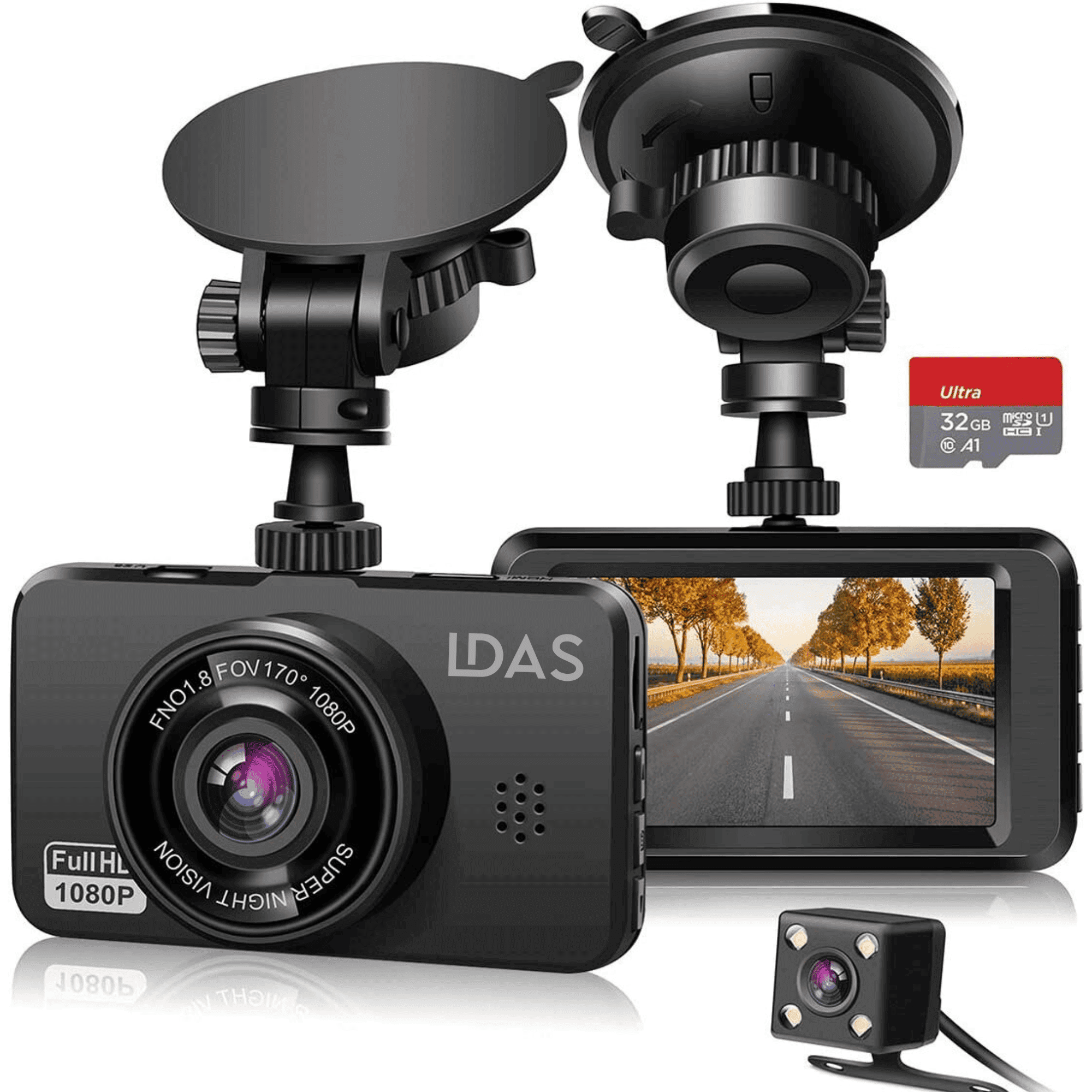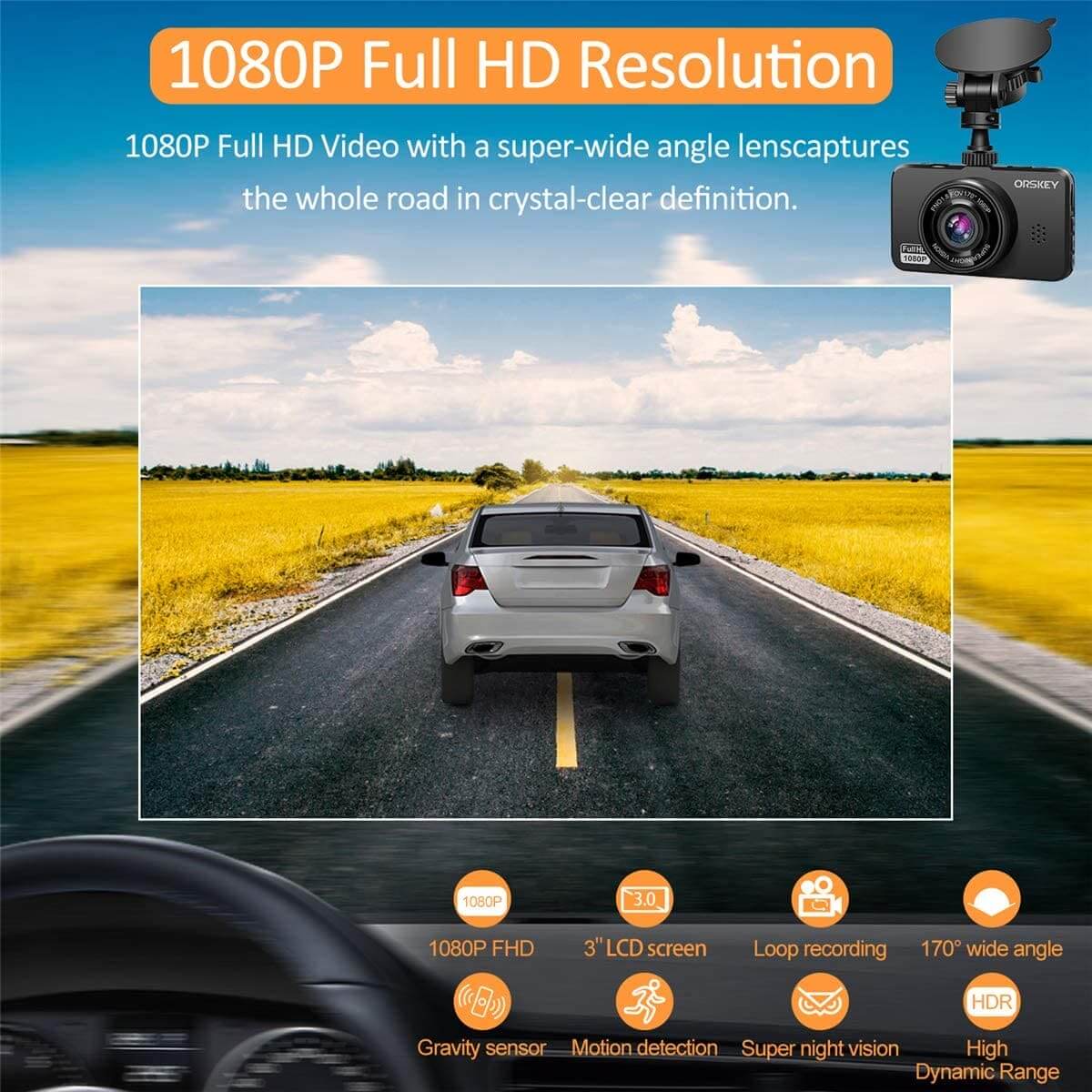In an age where road safety and incident accountability are paramount, dash cams have transitioned from a luxury to a necessity for drivers. The LDAS Dash Cam for Cars Front and Rear with SD Card exemplifies modern advancements in vehicle surveillance technology. This robust device offers full HD recording capabilities with front and rear cameras, ensuring that drivers have a comprehensive view of their surroundings at all times. The addition of an SD card ensures that footage is readily recorded and stored, which can be invaluable in providing evidence in the case of road incidents or for personal security.

The LDAS Dash Cam not only promises high-resolution imaging but also comes with features designed to enhance driver safety and ease of use. Its night vision capabilities and wide-angle lenses allow for clear recordings in various lighting conditions and broader street views. The system's G-sensor technology is integral for detecting sudden movements or impacts, triggering the device to automatically save and lock the relevant footage. This is particularly crucial in protecting important video files from being overwritten. Moreover, with additional functions like loop recording and parking monitoring, the LDAS Dash Cam serves as a vigilant companion for every journey.
Key Takeaways
- The LDAS Dash Cam offers high-definition front and rear monitoring for comprehensive coverage.
- It provides additional safety features such as night vision, G-sensor, and automatic loop recording.
- The included SD card ensures secure storage and easy management of video footage.
Understanding LDAS Dash Cams
LDAS dash cams are designed to provide drivers with a safe driving experience and peace of mind. These devices serve as a reliable witness on the roads, capturing both the front and rear views of the driving environment.
History and Evolution of Dash Cams
Dash cams, or dashboard cameras, have evolved from simple devices used to record continuous footage to sophisticated units capable of providing comprehensive coverage around a vehicle. The technology behind LDAS dash cams has progressed to incorporate features such as dual-lens systems, maximizing the field of vision by capturing events occurring both in front of and behind a vehicle.
Benefits of Using LDAS Dash Cams
When customers choose LDAS dash cams, they secure a set of advantages that extend far beyond the basic functionality of a simple recording device. Key features of these dash cams include:
- Full HD Resolution: Ensuring crystal-clear recordings, which is essential for identifying details such as license plates or street signs.
- Front and Rear Cameras: Providing complete coverage of the vehicle's surroundings to better assess the context of an event.
- Included SD Card: Allowing immediate use and storage of footage without the need for additional purchases.
- Loop Recording and G-Sensor: These features ensure that crucial moments are captured by overwriting old, unneeded footage and locking the video files in the event of a collision, respectively. Users can find products with these characteristics at Best Buy and on the official LDAS website.
- Parking Monitoring: Offering protection even when the vehicle is unattended.
By integrating these technologies into a single device, LDAS dash cams help ensure a safer driving experience – for both seasoned drivers and new customers alike – by keeping an unblinking eye on the road, day or night.
Key Features of LDAS Dash Cams

LDAS Dash Cams stand out for their impressive roster of features tailored for modern drivers, offering high-definition clarity, advanced recording technology, and dependable performance in various driving conditions.
Video Quality and Resolution
LDAS Dash Cams capture footage in full HD resolution. The front camera records in super HD at 1920x1080P / 30FPS, while certain models boast a 1440P or even 5K capability, ensuring crisp and detailed video output suitable for identifying important details such as license plates.
Super Night Vision Capabilities
Equipped with a Sony sensor and F1.8 aperture, LDAS Dash Cams excel in low-light conditions. The super night vision feature allows for clearer recording during the night, providing security and clarity around the clock.
Front and Rear Camera Integration
These dash cams come with a dual dash camera system, integrating both front and rear cameras. This setup ensures comprehensive coverage of the vehicle's surroundings, boosting the driver's awareness and safety.
Advanced G-Sensor Technology
In the event of a collision, the built-in G-sensor is triggered to lock and save critical footage. This technology ensures that the moment of impact is preserved and can be used as reliable evidence if needed.
Loop Recording Functionality
LDAS Dash Cams utilize loop recording, which automatically overwrites the oldest footage with the newest when the SD card is full. This feature ensures continuous recording without the need for manual intervention.
Wide Angle Coverage
With a 170° wide-angle lens, these dash cams provide an expansive field of view, capturing a wide area around the vehicle. This breadth of coverage reduces blind spots and captures more of what happens on the road.
Parking Monitoring Features
The parking monitoring features include a 24 hours parking monitor, allowing LDAS Dash Cams to record while the car is parked. This gives drivers peace of mind that their vehicle is being monitored at all times.
Installation and Setup
When installing the LDAS Dash Cam, one should meticulously follow a step-by-step process to ensure proper functioning. This involves secure mounting, configuration of camera settings, and connecting to the LDAS App for enhanced control and data management.
Mounting Your LDAS Dash Cam
To begin, it's imperative to mount the LDAS Dash Cam correctly. One should identify the optimal spot on the windshield, giving a clear vantage point for both front and rear cameras. The process typically involves cleaning the area and adhering the mount either via a sticky pad or a suction cup, depending on the model. Ensure that the camera's view is unobstructed and that it does not impede the driver’s vision.
Configuring the Camera Settings
After mounting, the next step is configuring the camera settings. This entails setting the correct date and time, adjusting the video resolution (typically 1080P Full HD is recommended), and customizing features such as loop recording intervals and G-Sensor sensitivity. Precise configuration is crucial for optimal performance and reliable recording sequences.
Connecting to the LDAS App
Finally, for a comprehensive user experience, one should connect the dash cam to the LDAS App. This allows for easy management of recordings and settings adjustment. To connect, one must turn on the camera’s Wi-Fi and sync it with the app available on both Android and iOS platforms. Through the app, users have seamless access to their footage, making it easy to review and transfer files when necessary.
Following these directives ensures that the LDAS Dash Cam is set up for success, starting from the initial installation to the final app integration for management and reviewing purposes.
Storage Considerations
When opting for an LDAS Dash Cam, it is vital to consider the capabilities and management of the SD card used for storage. The right choice can affect both the performance and reliability of your dash cam.
SD Card Capacity and Management
LDAS dash cams generally come with an SD card included, ensuring that they are ready to use out of the box. The capacity of these memory cards can greatly influence how much footage can be stored before the need to overwrite old files. For instance, higher resolution videos, like those recorded in 1080P, take up more space on the SD card. Managing this capacity efficiently, through features like loop recording, helps to maximize the available storage by overwriting the oldest files only when the card is full.
It is important to know that dash cams typically require regular overwriting of data, putting a strain on the memory card. A card with a larger capacity minimizes the number of write cycles, prolonging the life of the SD card. For continuous recording, a high endurance microSD card is recommended, given it can withstand the rigors of constant writing and rewriting.
Choosing the Right SD Card
Selecting the optimal SD card involves matching the storage capacity and durability to the user's needs. LDAS dash cams are often compatible with microSD cards up to a certain size, and it's crucial to adhere to the manufacturer's specifications to ensure proper operation. Cards with faster write speeds are preferable as they can better handle the demands of writing high-definition video, especially if the dash cam records in 1080P or higher.
Brand and quality also play a role in the reliability of the SD cards. A well-reputed brand is likely to offer better performance and less risk of data corruption. Check the product descriptions, like those detailing the LDAS Dash Cam's storage capabilities, to ensure compatibility and performance. Remember to format new SD cards before use to ensure they work correctly with your dash cam, and replace them periodically to prevent data loss.
Connectivity Options

The LDAS Dash Cam offers advanced connectivity features, allowing users to seamlessly integrate the device with other technology in their vehicle. It's designed to accommodate the needs of drivers who favor both convenience and security from their dash cam systems.
Wireless and Wi-Fi Capabilities
The LDAS Dash Cam is equipped with Wi-Fi connectivity, which is foundational for wireless communication between the dash cam and other devices. This allows users to directly connect to the front and rear dash cam using a smartphone app. Once connected via Wi-Fi, drivers can view, download, and share footage from their dash cam without the need for physical data transfer methods.
With an emphasis on user-friendliness, the dash cam's Wi-Fi capability simplifies the process of updating firmware or changing settings on the device. Users enjoy the flexibility of managing their dash cam remotely, enhancing the overall experience of operating a wireless dash cam system.
Enhancing Safety on the Road
The introduction of comprehensive dashboard camera systems like the LDAS Dash Cam Front and Rear with SD card has significantly contributed to safer driving experiences. Equipped with features such as g-sensors and parking monitors, these devices are pivotal in bolstering on-road security.
LDAS's Role in Safe Driving
The LDAS (Local Danger Alert System) plays a critical role in ensuring a safe driving experience for motorists. By continuously monitoring the vehicle's surroundings, the LDAS alerts drivers to potential hazards, thereby allowing for timely preventive measures. When paired with the dash cam's high-definition recording capabilities, the system captures crucial details of the driving environment that can be instrumental during insurance claims or legal proceedings.
Dash Cams as Deterrents for Unsafe Driving
Dash cams, particularly models with g-sensors, have a dual role in promoting safety. Firstly, the g-sensor technology detects sudden movements such as harsh braking or collisions, which triggers the dash cam to secure the recorded footage from being overwritten. This function is essential in identifying the cause of accidents. Secondly, the mere presence of a dash cam often acts as a deterrent to unsafe driving practices, as drivers are aware that their actions are being recorded. The parking monitor feature adds an additional layer of security when the vehicle is left unattended, making the system a comprehensive guardian of vehicular safety.
Product Support and Warranty

When purchasing the LDAS Dash Cam, customers are provided with a comprehensive warranty and reliable customer support. These services are designed to enhance the user experience and ensure confidence in their purchase.
Understanding Your Warranty
Duration of Warranty: The standard warranty period for the LDAS Dash Cam is typically one year from the date of sale, ensuring that new customers can enjoy their product with peace of mind.
Coverage: The warranty typically covers manufacturing defects and hardware malfunctions. It does not cover any issues that arise from improper use, accidental damage, or normal wear and tear.
Process: To make a warranty claim, the customer must contact LDAS support with proof of purchase. The company will then guide the customer through the process, which may involve returning the product for inspection and repair or replacement.
Customer Service and Support
Contact Channels:
- Phone Support: Available for direct assistance during business hours.
- Email Support: Customers can expect a response within a reasonable timeframe, usually within 24 to 48 hours.
After-Sale Support:
- Installation Guidance: LDAS provides step-by-step instructions and video tutorials for setting up the dash cam.
- Troubleshooting: In case of any product issues, LDAS offers troubleshooting support to help resolve common problems.
It’s important that customers retain their proof of purchase and understand the terms and limitations of their warranty to utilize the support services effectively.
Additional Considerations
Before installing the LDAS Dash Cam or any front and rear dashcam like the Rexing V1P, it is imperative to be informed about legal considerations and necessary maintenance to ensure proper functionality and compliance.
Legal Aspects of Dash Cam Usage
Dashcams like the LDAS and Rexing V1P are subject to legal regulations that vary by location. One must ensure they adhere to regional privacy laws, which may restrict recording in certain areas without consent. Additionally, users should check if their state or country allows dashcams to be mounted on the windshield, as in some jurisdictions, this might obstruct the driver's view and be considered illegal.
Dash Cam Maintenance Tips
Maintaining your dashcam is crucial for its longevity and performance. Users should frequently check their device, ensuring that the SD card is functioning correctly to avoid loss of important footage. Periodic firmware updates are also recommended to keep the device's software running smoothly. Here are some simple steps:
- Check the SD card: Regularly verify the SD card's storage availability and integrity.
- Clean the lenses: Both the front and rear cam lenses should be kept clean for clear recording.
- Update software: Keep the dashcam's firmware up to date to ensure optimal performance and security.
- Secure the mount: Inspect the mount to prevent vibrations or detachment that could disrupt recording.
Making a Purchase Decision
When purchasing an LDAS Dash Cam with an included SD card, consumers need to examine their specific requirements, compare LDAS models, and locate advantageous deals to augment their driving experience with this safety device.
Assessing Your Needs
Before investing in a dash cam system, it's crucial to evaluate what features are essential for one's peace of mind on the road. The LDAS dash cam offers full HD resolution and a 170° wide-angle lens, ensuring broad coverage and crystal-clear imagery. Buyers should consider night performance, as LDAS's system is equipped with superb night vision capabilities for low-light conditions.
Comparing LDAS Dash Cam Models
LDAS offers various models with different features tailored to customers' divergent needs. The dual dash camera configuration is particularly attractive as it provides both front and rear coverage, crucial for comprehensive documentation of one's driving environment. Shoppers should also review warranty offers to ensure long-term protection and support for their dash cams.
Finding the Best Deals and Sales
To maximize value, potential buyers can look for promotions and reduced prices during specific times of the year. For instance, LDAS has been known to run sales, potentially offering significant savings off regular prices. Moreover, customers should scan for bundle deals that include an SD card, further adding to the value proposition of the dash cam system.
Closing Thoughts

The LDAS Dash Cam presents a compelling option for drivers seeking both high-quality footage and peace of mind while on the road. Its front and rear cameras deliver clear, full HD resolution, ensuring comprehensive coverage of roadside events.
- Resolution: 1080P Full HD
- Camera Angles: 170° Front & Rear
- Special Features: Loop Recording, G-Sensor, Night Vision
The dual lenses offer a wide field of vision, capturing incidents no matter where they occur relative to the vehicle. Furthermore, features such as loop recording and the built-in G-sensor solidify its reliability, automatically safeguarding important clips in case of abrupt movement or impact.
Drivers who prioritize safety along with detailed recording will appreciate the added night vision capability. The LDAS Dash Cam's superior night vision technology ensures that even during low light conditions, the footage remains sharp and usable.
The inclusion of an SD card simplifies the user experience by providing immediate storage for video files, and helps save additional costs and time that may otherwise be spent on purchasing external memory.
In summary, this dash cam system stands out as a prudent choice for those who require a dependable eyewitness on their daily commutes or long-distance travels. The balance of features geared towards both safety and quality make it a noteworthy tool for modern driving environments.
Frequently Asked Questions

The LDAS dash cam is equipped with front and rear cameras, promising full coverage and peace of mind for drivers. Below are some frequently asked questions to provide more detail on its features, installation, and usage.
What are the standout features of the LDAS dash cam when compared to other brands?
The LDAS dash cam features dual front and rear cameras that capture high-definition footage. It offers a 170° wide-angle lens, superior night vision, and advanced Sony sensors to ensure clear recording under various driving conditions.
What are the price points for the different models of LDAS dash cams with front and rear cameras?
The models vary in features and price ranges to cater to different customer needs. By visiting the official LDAS website, prospective buyers can compare the latest prices and find a dash cam that fits their budget.
How do you install an LDAS dash cam in a vehicle?
Installation typically involves mounting the cameras on the windshield and rear window, connecting them to the vehicle's power supply, and configuring the settings. For step-by-step instructions, consumers can refer to the user manual that comes with their LDAS dash cam.
What is the maximum supported SD card size for LDAS dash cams?
LDAS dash cams support SD cards up to a certain size for optimal performance. Information on maximum SD card storage can be obtained directly from the product's specifications or by contacting LDAS customer support.
How can I access and review the footage recorded by an LDAS dash cam?
Footage can be reviewed by removing the SD card and accessing its content on a compatible device, such as a computer or smartphone. Some models may offer connectivity options for direct playback and download of videos.
What should I do when the SD card in my LDAS dash cam becomes full?
LDAS dash cams often come equipped with loop recording, which automatically overwrites the oldest footage. However, it's advisable to regularly back up important clips and format the SD card to ensure continuous recording and extend the card's lifespan.

